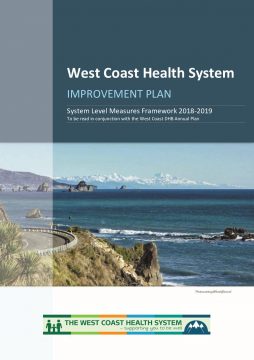The System Level Measures Framework was introduced by the Ministry of Health in 2016/17 and encourages a system-wide approach to improving health outcomes.
It presents a core set of national outcomes for the health sector to strive towards with the opportunity to identify a set of local contributory measures, aligned with each of the national outcomes.
KEY ACHIEVEMENTS
The West Coast Alliance has monitored the progress of the 2017/18 Improvement Plan throughout the year and is pleased to see the progress being made both in local contributory measures as well as the nationally selected System Level Measures.
Improvements to the enrolment process for Community Oral Health services have seen 99% of our pre-school population receiving their annual oral health check on time in 2017, up from 91% in 2016. Regular checks allow for early intervention where necessary and provide the opportunity for clinicians to reinforce the importance of baby teeth and good oral hygiene practices.
Coordinated promotion and efforts by general practices, pharmacies and the team at Poutini Waiora saw 63% of our Māori population aged 65 or over receiving their free seasonal influenza vaccination in the 2017 flu season, up from 50% in 2016. This key group are at higher risk of influenza and this programme provides good protection against a preventable hospitalisation.
Two of our general practices are now enrolling patients who have a long term mental health condition into the free long term conditions management programme which allows patients to access a free annual health check. Working in this way allows patients to consider their physical and mental health needs as a complete picture.
A data quality improvement project that has seen collaboration between our DHB B4 School Check (B4SC) service, general practices and the Ministry of Health has ensured that 100% of children identified as obese at their B4SC were offered a referral to their GP for ongoing support with growth monitoring and lifestyle interventions, up from 17% in 2016/17.

